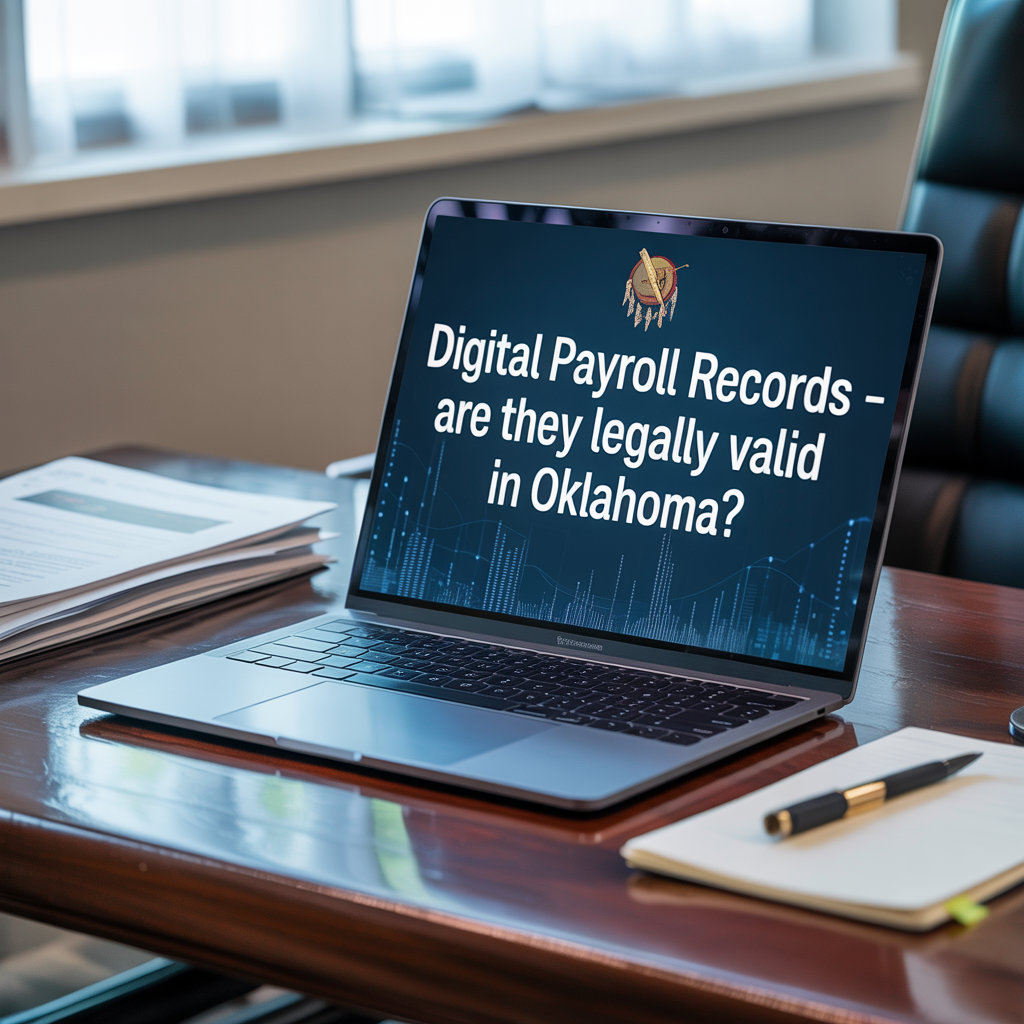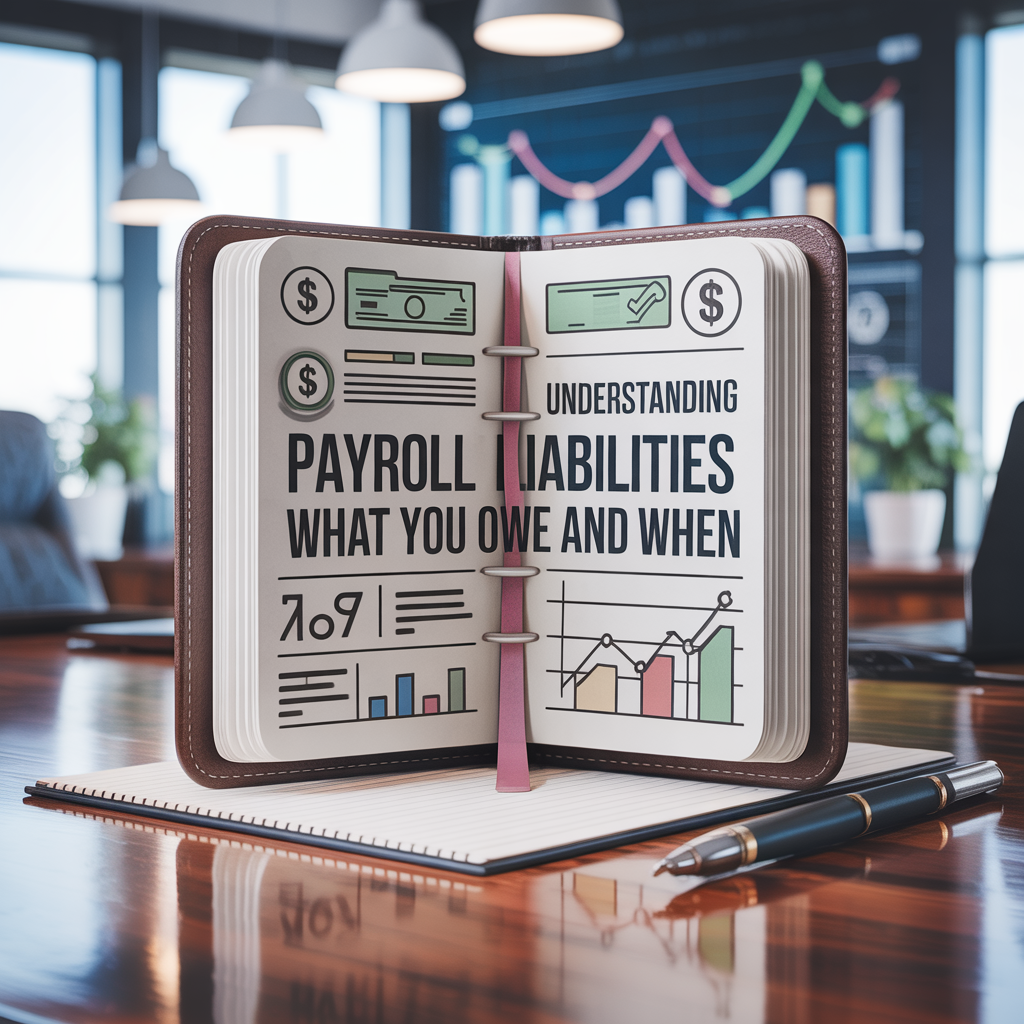Digital Payroll Records – Are They Legally Valid in Oklahoma?

Is Paper Still Required?
More and more Oklahoma businesses are ditching paper for digital payroll systems. Whether you use iSolved, QuickBooks Payroll, Gusto, or another platform, it’s easier than ever to go completely paperless.
But many business owners still ask:
“Are digital payroll records legal in Oklahoma?”
The short answer is: yes — if you do it right.
This blog explains what Oklahoma and federal law require, what formats are acceptable, and how to avoid common mistakes that could cost you during an audit.
Are Digital Payroll Records Legal in Oklahoma?
Yes. Both the IRS and Oklahoma agencies accept digital payroll records, provided they are:
- Accurate and complete
- Securely stored
- Accessible for review or audit
- Maintained for the required time period
The federal standard comes from IRS Rev. Proc. 97-22, and Oklahoma law follows suit.
What Records Can Be Stored Digitally?
You may store the following payroll documents in digital format:
- Pay stubs / earnings statements
- Timecards or digital punch logs
- Payroll registers
- Direct deposit records
- Tax filings (941, 940, OW-9, OW-2)
- W-2s, W-3s, 1099s
- I-9 and W-4 forms (with conditions)
- Benefit deduction authorizations
Note: Some documents like I-9s must be stored in a specific digital format and remain accessible during a DHS audit.
Digital Payroll Record Requirements
To comply with Oklahoma and federal law, your records must:
- Be
readily retrievable and printable
- Be
backed up regularly
- Have
access restrictions in place
- Include
audit trails (who accessed, changed, or deleted files)
- Be retained for at least 3–7 years depending on the document type
Cloud platforms like iSolved and QuickBooks Online Payroll meet these standards when configured properly.
Common Mistakes to Avoid
- Storing files on a personal laptop with no backup
- Incomplete or missing records due to bad file naming
- Retaining W-2s but not payroll summaries or registers
- Assuming your payroll provider is saving everything for you
If it’s not backed up and accessible, it’s not compliant.
Should You Still Keep Paper Copies?
You don’t have to — but some business owners choose to keep:
- I-9 forms in hard copy
- Signed contractor agreements
- Original garnishment or legal notices
This is a preference, not a legal requirement, as long as your digital copies are secure and retrievable.
How Boulanger CPA Helps Clients Stay Compliant Digitally
We help Oklahoma businesses:
- Set up secure, cloud-based payroll record storage
- Create folder structures by year and employee
- Provide monthly reports in digital format
- Perform regular backup and retention checks
- Ensure full IRS and Oklahoma compliance
You’ll never lose sleep over missing records again.
Ready to Go Paperless (Legally)?
We help Oklahoma businesses move to modern, compliant payroll systems that meet every legal standard.
📞 Call Boulanger CPA at (405) 384-4900
📅 Or schedule your free compliance strategy session today.
Internal Links
FAQ – Digital Payroll Records in Oklahoma
Are digital payroll records accepted during an audit?
Yes. As long as they are accessible, accurate, and complete, digital records are fully audit-compliant.
Do I still need to print W-2s or 941s?
No, but you must be able to reproduce and deliver them to employees or agencies upon request.
What if my payroll provider goes out of business?
Always download and back up your records. Don’t rely solely on a third party.
Can Boulanger CPA review my current system?
Yes. We perform compliance reviews and help you modernize your entire payroll documentation process.

Marc Boulanger
Marc views his accounting business as an extension of his family. And while he holds a Bachelor of Arts in Business Administration and Accounting and a Masters of Science in Accounting, he values traveling around the country with his wife of 30 years and 5 kids, Marc learned that communication is the key to effective team work.


